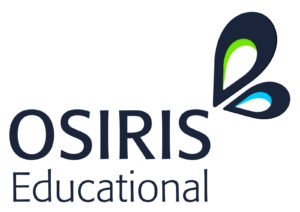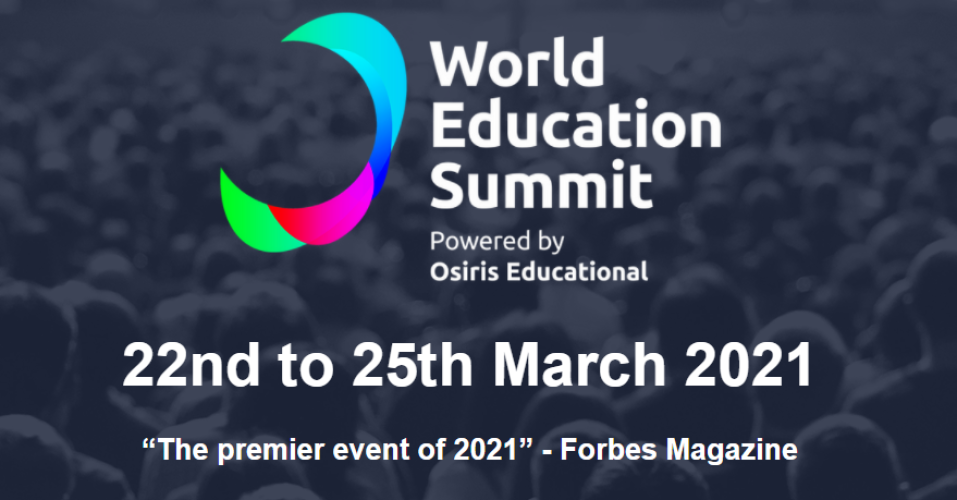The World Education Summit firmly established itself as the biggest and best global event in the educational calendar. With 45,000 paying attendees and more than 400 sessions and delegates from 84 countries it tackled some of education’s toughest challenges head on.
As we unpick the learning, much needed paradigm shifts have begun to emerge. These look set to resonate for many years to come.
Development of Teachers
The way we develop teachers now and for the future may no longer be fit for purpose. Out of 17,500 teacher qualifying institutions worldwide only a handful are world class. Yet routinely teachers are sent into classrooms to hone their craft. With the aid of best endeavours, some mentoring, and a few resources they rapidly improve or leave.
The alternative suggested by Professor’s Janet Clinton and John Hattie, is to move to an evaluative model of teacher development where they and their students are trained to be evaluators of their impact. We have known for a long time that every teacher is different and teaches differently.
By moving to an evaluative model, difference is embraced. The notion of the journey from Novice to Expert is centred around impact on learners and their learning.
Is Education a Wicked Problem?
Current agendas in education are full, complex, and becoming more difficult to navigate. Additions such as mental health, notions around identity and embracing uncertainty only add to the complexity.
Professor Dylan Wiliam said that “education may already be a wicked problem. Current agendas are far too full for educators to handle. Mile wide, inch deep is an unsatisfactory solution for curricula in response”.
We are long overdue a clear vision and pruning of priorities.
Ed Tech – Too much Tech and not enough Ed
The 50-year Ed Tech revolution has taken a lot of resources and time but offered far too little in terms of impact. Whilst other industries and professions have been completely transformed by the march of tech, classrooms have barely changed.
We should think of the tech as a tap said one speaker. If people don’t want to drink water, it has little purpose. And without the plumbing and connection to the mains no one can drink.
The problem isn’t the tech. The problem seems to be the educational design. Instead of using tech to replicate what we already do incredibly efficiently we need to reprogramme the areas of inefficiencies. Assessment, marking, organisation…
AI
Of the four levels AI offers; logistic, cognitive, content and deep only the logistic level currently offers substantial gains. The likes of Stack and Monday are being integrated into schools to help solve organisational complexities.
Much of what else we see is fairly standard algorithms dressed up to look like AI. The level that offers the most potential for human learning, remains a distant dream.
Whilst we have incredible power in our iPhone, the real power is in the I. As Sugata Mitra said ‘Let children have AI to play with like a toy or a dog. And don’t let it play with them.’ This can partly be done through setting children wicked problems. And letting them loose on trying to solve them rather than guiding them through well-rehearsed curriculums where the teacher is several steps ahead.
Identity
In education we have long known that there is a highly personal experience that lies beyond the taught subjects of the curriculum. Pastoral Care, PSE, social and emotional learning, well-being, mindfulness, happiness, kindness, positive psychology, mental health, and trauma all have been attempts to give this area homes.
Sadhguru offered that at the heart of all these lies identity and our relationship with Shared Consciousness. The problem is that we try to use words and intellect to define the problems and potential solutions. They are the tools we apply to all learning.
What we may need is to relax into our sense of being and explore consciousness. And as we feel that consciousness (it is too hard to rationalise, and words will never do it justice) we realise that we are all one. That a golden thread connects every cell in our body to every cell in the entire universe. If the universe started from one atom, we are all connected to everything. And that connection is our shared consciousness.
Leadership
Relationship building rather than school building should be the priority of school leaders. Yet in most formal leadership qualifications this complex area barely gets a mention.
The importance for compassionate and courageous leadership is kindness, collective leader efficacy, connected autonomy and being human first. We need the right drivers for success at system level. Without courageous and compassionate leadership nothing will change. In developing our leaders, we need to get professional learning right and we need to ensure the human side is considered. We need to understand how people learn, how to collaborate with purpose and actually learn from each other.
When we build again
Covid 19 has produced huge change and now we see how people really use learning. When we have children in classrooms, we can control all the key variables of sight, sound and meaning making. But all too often, as the research shows us, we recreate the way we were taught.
What Covid has afforded us is a chance to look at how children actually engage and learn.
“And this gives us a huge chance to redesign around patterns of use not dogma and conventional wisdom” – Professor Stephen Heppel
Networking
The value of networking has been sadly underestimated by too many in education. Professor Mick Waters pointed to networking as a decisive skill development in the difference between state and private schools.
Professor Alan Daly demonstrated the power of social networking in scalable professional development, easily demonstrating the failure of top-down initiatives in comparison to those leveraging upwards.
When we think of networking it needs to be across schools, across communities and across the world. Wicked problems such as climate change, poverty, unconscious bias, and sustainability need massive solutions. Crucial skills will include the development of social sensitivity, collective efficacy, interdependence, and cooperation on scales rarely seen before.
Data is a disaster in education…
It needs deeper understanding. Too many schools have too many ways of collecting what is essentially the same information, a trajectory to an external verified examination outcome.
Such data trails may provide a sense of comfort, but we are not good enough at interpretation and use in complex problem solving. Too often we draw wrong conclusions. And instead of treating these conclusions as theories of action or starting points for investigation we jump to judgement.
See an evaluative teacher model for a more promising way forward. See specificity as a way to a better understanding of what it is we seek to improve.
Assessment
Current assessment methods are producing perverse incentives. And the higher the stakes the more likely they are to be gamed or even cheated. Teaching to the test, focusing on threshold grade students, off-rolling and blueprinting are all rife in systems with high stakes testing.
Amongst many problems this can cause is the focus on short term retention rather than deep learning. Another is a system of winners and losers. And all too often the losers at aged 5 still perceive themselves as losers as they leave formal education. Our job is to challenge expectations. Help students find things in themselves that they cannot find for themselves.
Four suggestions emerged for reimagining assessment
- Judge education and students on what they can do at the age of 25
- Stop the false over identification with formal and summative (they are both sides of the same coin)
- Let universities set entrance tests and schools prepare children for those externals
- If Doctoral is the highest standard use its processes in a reformed examination structure
What would a Mini Doctorate look like in your school?
Stephen Cox, CEO
The World Education Summit brought together so many people from all over the globe. All focused on learning. Now we are continuing that with The Learning Survey.


